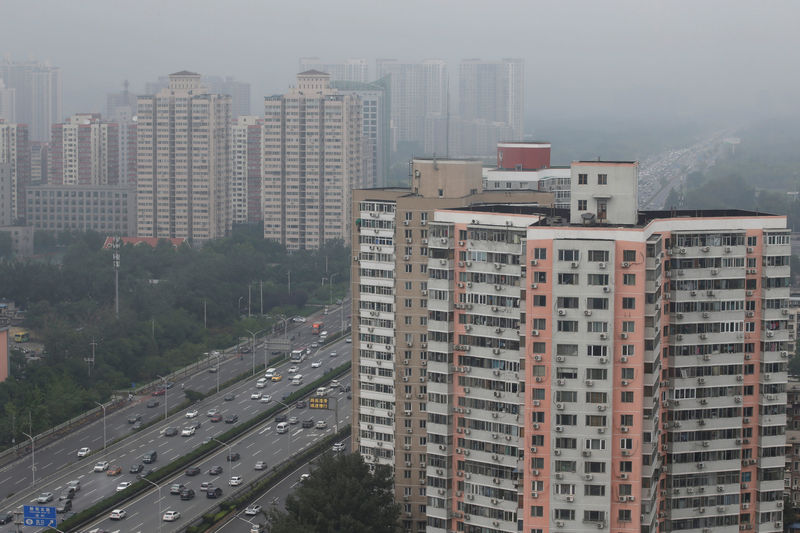BEIJING (Reuters) - Property investment in China picked up in November, in contrast to other key data where growth weakened sharply, though soft home sales and land purchases pointed to a dim outlook for the sector amid a slowing broader economy.
Real estate investment, which mainly focuses on the residential sector but includes commercial and office space, rose 9.3 percent in November from a year earlier, accelerating from 7.7 percent in October, according to Reuters calculations based on data released by National Bureau of Statistics (NBS) on Friday.
Also on Friday, China reported retail sales grew at their weakest pace since 2003 and industrial output rose the least in nearly three years in November.
For the first 11 months, property investment increased 9.7 percent from the year-earlier period, the same percentage as in January-October. In the previous months, the percentage increase had dropped for three months.
The upbeat headline number for November was largely buoyed by more construction starts. Measured by floor area, such starts surged 21.7 percent from a year earlier, up from 14.7 percent in October, according to Reuters calculations.
"After busy land acquisition under high leverage early this year, developers now are rushing to launch new construction and kick off presales in hopes to collect cash as quick as possible as financing pressure mounts," said Nie Wen, economist at Hwabao Trust in Shanghai.
In China, the sales process usually begins soon after construction starts, and historically most apartments are sold before they are completed.
However, after strong growth in 2016 and 2017, sales have been subdued this year, on the back of tighter controls to cool property prices.
CAUTIOUS BUYERS
As worries about the economy increase, potential home buyers tend to grow more cautious about spending.
In November, property sales by floor area, a major indicator of demand, fell 5.1 percent from a year earlier, compared with October's 3.1 percent drop. In the first 11 months, property sales by area rose 1.4 percent from a year earlier, official data showed.
Analysts predict the softer sales will constrain price growth in coming months, dampening developers' appetite for front-loading construction.
In another sign of cooling sentiment, China's land market has been less vigorous in the second half of 2018, with land sale premiums narrowing and failed auctions surging, suggesting developers have turned more cautious as liquidity condition deteriorates.
Failed land auctions in China's 300 cities totaled 618 cases by the end of November, according to state-run China News Service, more than double 2017's number.
Funds raised by China's real estate developers in the first 11 months grew 7.6 percent from the same period a year earlier, compared with 7.7 percent in January-October, the NBS data showed.
Some property companies, such as Evergrande Group (HK:3333) and Times China Holdings (HK:1233), recently sold bonds at double-digit yield, underlining the rising financing they face.
A Reuters poll this week showed property investment would slow to 4 percent in 2019, while housing sales are expected to fall 5 percent amid slowing economic activity and tough financing conditions for smaller developers.
The softening in the housing market adds to the rising headwinds facing the world's second-largest economy, which is trying to ward off a sharp slowdown amid a bitter trade war with the United States.
Most economists expect China's local governments to relax restrictions on buyers in 2019 as their revenue from real property market shrinks.

Household loans, mostly mortgages, increased to 656 billion yuan in November from 563.6 billion yuan in October, central bank data showed on Tuesday.